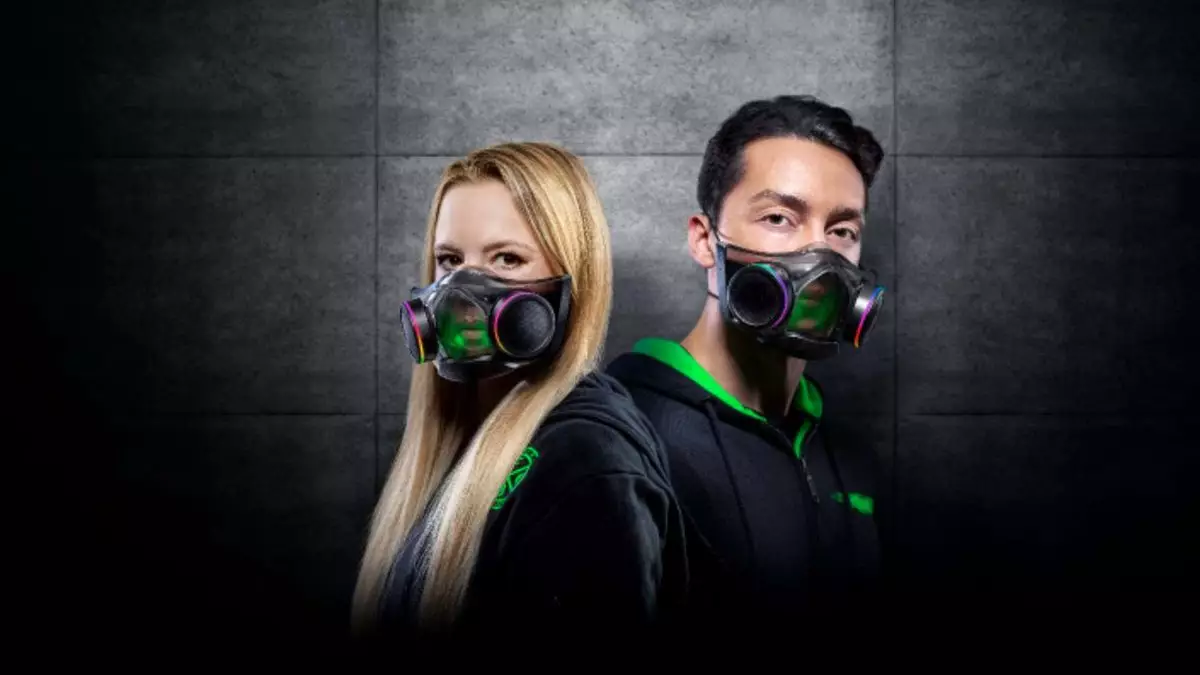The Covid-19 pandemic has drastically altered how individuals perceive personal protective equipment (PPE), with a notable uptick in the demand for multifunctional masks that blend fashion with safety. Among the many offerings in this space was Razer’s Zephyr mask, notable for its RGB lighting and sleek black design that aimed to appeal to tech enthusiasts and gamers alike. However, beneath its stylish exterior lay a web of deception that raises serious questions about consumer trust, corporate responsibility, and regulatory oversight.
Razer’s marketing strategy for the Zephyr mask hinged on alluring visuals and tantalizing claims of superior filtration. By including references to “N95 Filters,” Razer seemingly implied that customers would receive protection comparable to the N95 standard, renowned for its effectiveness in filtering harmful particles. However, this assertion proved to be misleading. As the Federal Trade Commission (FTC) later clarified, the Zephyr mask was never intended to be classified as a medical device, nor did it obtain any certification from the Food and Drug Administration (FDA) or the National Institute for Occupational Safety and Health (NIOSH). This dissonance between marketing rhetoric and product reality not only misled consumers but also sparked significant legal repercussions for Razer.
A Backlash and Legal Repercussions
In light of these misleading claims, the FTC initiated legal action against Razer in April 2024, resulting in a settlement that mandated the company to pay over $1 million in refunds and penalties. This situation highlights a broader issue where consumers feel compelled to trust brands based on their marketing messages. Razer’s initial fraudulently optimistic claims have been detrimental not only to their brand reputation but also serve as a cautionary tale for other companies venturing into health-related product categories.
The ramifications extended beyond mere financial settlements. The mask was available for purchase only in the first half of 2022, yet the company’s inadequate refund policy was glaring. Data reveals that fewer than 6% of U.S. customers received refunds, which were often conditioned by frustrating stipulations such as product use or adherence to a limited return window. The complexity of the refund process left many would-be claimants uncertain and misinformed about their entitlement to a full refund.
The uncertainty was compounded by Razer’s customer service teams, who often misinformed buyers about their refund statuses, leading to further confusion and frustration among consumers. This mismanagement has undergone increased scrutiny, especially as many consumers continued to rely on masks for protection against various pathogens, including Covid-19. For those who sought out the Razer mask believing it to be a high-quality protective solution, the experience was not only disappointing but also detrimental to their trust in similar or future products.
As someone who takes masking seriously and constantly looks for reliable protective gear, the debacle surrounding the Zephyr mask strikes a personal chord. The amalgamation of stylish appeal and enhanced functionality is certainly captivating; however, it carries risks when the core promise of safety and efficacy is not fulfilled. The emergence of this scenario underscores a pressing need for consumers to tread carefully in the market, questioning claims and looking for verified certifications.
The unfolding of Razer’s attempts to balance consumer demand with innovative marketing offers numerous insights into the importance of transparency and accountability in product representation. Companies must take heed of regulatory guidelines and ensure that their marketing does not outpace the reality of the product they offer. This case serves as a potent reminder of the ramifications of misleading claims and a clarion call for consumers to be vigilant in their understanding of what they purchase.
In the final analysis, Razer’s experience with the Zephyr mask reveals the pitfalls of prioritizing aesthetics over genuine consumer quality and safety. The tech industry must prioritize authenticity and customer welfare to cultivate long-term relationships built on mutual trust. As consumers, we must sharpen our discernment, ensuring that our desires for stylish, functional products do not overshadow the critical need for reliability and safety in personal protective equipment.

